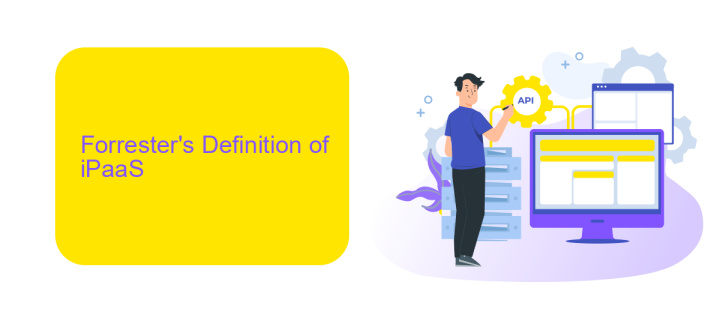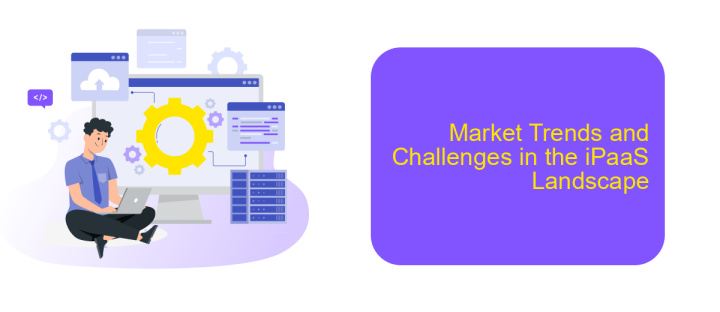iPaaS Forrester
In an era of digital transformation, Integration Platform as a Service (iPaaS) solutions have become essential for businesses to seamlessly connect disparate systems and data sources. The Forrester Wave report provides a comprehensive analysis of the leading iPaaS vendors, helping organizations make informed decisions to drive efficiency, innovation, and growth in today's competitive landscape.
Introduction to iPaaS
Integration Platform as a Service (iPaaS) is a suite of cloud services enabling seamless integration of various applications and data sources. It provides a unified platform to connect disparate systems, facilitating data flow and communication between them. Businesses leverage iPaaS to streamline operations, improve data accuracy, and enhance overall efficiency.
- Centralized management of integrations
- Scalability to handle growing data volumes
- Real-time data synchronization
- Reduced integration complexity
- Enhanced security and compliance
One notable iPaaS solution is ApiX-Drive, which simplifies the integration process with its user-friendly interface and extensive library of pre-built connectors. ApiX-Drive allows businesses to automate workflows, eliminating manual data entry and reducing errors. By leveraging iPaaS solutions like ApiX-Drive, organizations can achieve greater agility and responsiveness in today’s dynamic business environment.
Forrester's Definition of iPaaS

Forrester defines Integration Platform as a Service (iPaaS) as a suite of cloud services enabling development, execution, and governance of integration flows connecting any combination of on-premises and cloud-based processes, services, applications, and data. iPaaS solutions provide pre-built connectors, business rules, and mapping capabilities to streamline the integration process, making it accessible for both IT professionals and business users. These platforms support a wide array of integration patterns, including application-to-application, business-to-business, and data integration, ensuring seamless interoperability across diverse systems.
A notable example of an iPaaS solution is ApiX-Drive, which facilitates the automation of workflows by enabling the integration of various applications without requiring extensive coding knowledge. ApiX-Drive offers a user-friendly interface and a vast library of pre-configured connectors, allowing users to easily set up and manage integrations. This service exemplifies Forrester's vision of iPaaS by providing tools that simplify complex integration tasks, enhance productivity, and ensure reliable data flow between disparate systems. By leveraging such platforms, organizations can achieve greater agility and efficiency in their digital transformation initiatives.
Key Benefits and Use Cases of iPaaS

iPaaS (Integration Platform as a Service) offers a range of benefits that streamline business operations and enhance connectivity. By providing a centralized platform for integrating various applications and data sources, iPaaS ensures seamless data flow and real-time information exchange, which is crucial for making informed decisions.
- Scalability: iPaaS solutions can easily scale with your business needs, accommodating growing data volumes and increasing numbers of integrations.
- Cost Efficiency: By reducing the need for custom integration development, iPaaS minimizes both upfront and ongoing costs associated with maintaining integrations.
- Speed: iPaaS platforms, like ApiX-Drive, enable rapid deployment of integrations, significantly reducing the time required to connect different systems.
- Flexibility: iPaaS supports a wide variety of applications and data formats, allowing businesses to integrate virtually any system.
- Enhanced Security: iPaaS providers ensure that data is securely transferred and stored, complying with industry standards and regulations.
Common use cases for iPaaS include automating workflows between CRM and marketing automation tools, synchronizing data across e-commerce platforms and ERP systems, and integrating various cloud services for unified data management. For instance, ApiX-Drive simplifies the integration process by offering pre-built connectors and a user-friendly interface, making it an ideal choice for businesses looking to streamline their operations without extensive technical resources.
Market Trends and Challenges in the iPaaS Landscape

The iPaaS (Integration Platform as a Service) market is experiencing rapid growth, driven by the increasing need for seamless data integration across various cloud and on-premises applications. Businesses are seeking efficient solutions to connect disparate systems, streamline workflows, and enhance data accessibility.
However, the landscape is not without its challenges. Companies often face issues related to data security, compliance, and the complexity of integrating multiple systems. The need for real-time data processing and the ability to scale integrations as business needs evolve are also significant concerns.
- Rising demand for real-time data integration
- Growing importance of data security and compliance
- Challenges in managing complex integrations
- Scalability and flexibility of integration solutions
Services like ApiX-Drive are becoming increasingly popular as they offer user-friendly tools for setting up integrations without extensive technical knowledge. These platforms provide pre-built connectors and templates, making it easier for businesses to automate workflows and ensure data consistency across systems. As the iPaaS market continues to evolve, the focus will likely remain on enhancing usability, security, and scalability to meet the diverse needs of enterprises.
Recommendations for Selecting and Implementing an iPaaS
When selecting an iPaaS solution, it is crucial to assess your organization's specific integration needs and scalability requirements. Start by identifying the key applications and data sources that need to be integrated. Ensure the iPaaS platform supports these integrations out-of-the-box or offers robust API capabilities for custom integrations. Consider the platform's ease of use, security features, and compliance with industry standards. Solutions like ApiX-Drive can simplify the integration process with its user-friendly interface and extensive library of pre-built connectors, enabling seamless data flow between various systems.
Implementation of an iPaaS requires a well-thought-out strategy. Begin with a pilot project to validate the platform's capabilities and address any potential issues. Engage stakeholders from different departments to ensure the solution meets cross-functional requirements. Establish clear governance policies for data management and integration workflows to maintain data integrity and security. Continuous monitoring and optimization are essential; leverage the analytics and reporting tools provided by the iPaaS to gain insights and improve performance. ApiX-Drive’s automation features can significantly reduce manual intervention, ensuring efficient and reliable integrations.
FAQ
What is iPaaS?
How does iPaaS benefit businesses?
Can iPaaS be used by non-technical users?
What types of applications can be integrated using iPaaS?
How secure is data when using iPaaS?
Apix-Drive is a universal tool that will quickly streamline any workflow, freeing you from routine and possible financial losses. Try ApiX-Drive in action and see how useful it is for you personally. In the meantime, when you are setting up connections between systems, think about where you are investing your free time, because now you will have much more of it.

